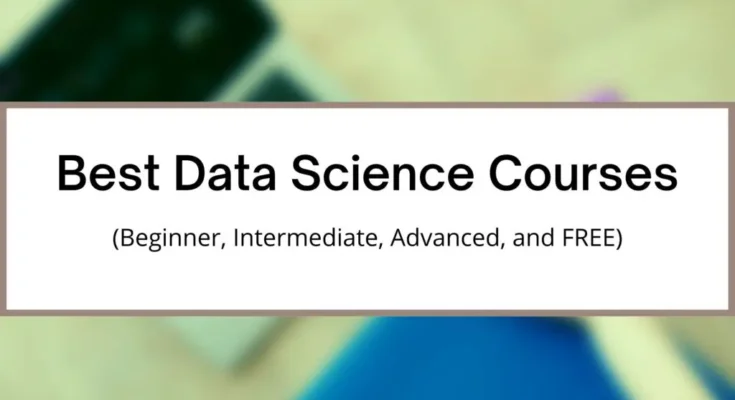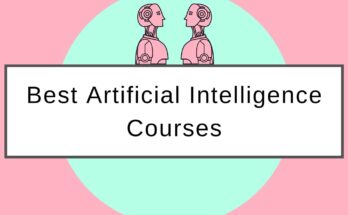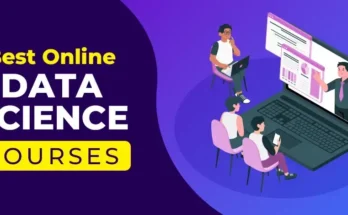Businesses and organizations across various industries rely on data to make informed decisions, optimize processes, and gain a competitive edge. As a result, data science has emerged as one of the most sought-after skills in the job market. Fortunately, there is a wealth of free data science courses available online to help individuals of all backgrounds develop the knowledge and skills needed to excel in this field.
This article will explore the best free data science courses, their key features, frequently asked questions, and a concluding note on the value of these courses in your data science journey.
Why Learn Data Science?
Before diving into the list of the best free data science courses, it’s crucial to understand why data science is a field worth exploring. Data science is the interdisciplinary field that uses scientific methods, algorithms, processes, and systems to extract knowledge and insights from structured and unstructured data. Here are a few compelling reasons why learning data science is a great choice:
1. High Demand for Data Scientists: Companies are increasingly relying on data to drive their decision-making processes. This has led to a surge in demand for data scientists and analysts.
2. Lucrative Career Opportunities: Data scientists are among the highest-paid professionals, thanks to their ability to leverage data for business growth.
3. Diverse Applications: Data science is used in a wide range of domains, including finance, healthcare, e-commerce, marketing, and more. This diversity offers the chance to explore various industries.
4. Continuous Learning: Data science is an ever-evolving field, providing opportunities for lifelong learning and skill development.
Now that you understand the significance of data science, let’s explore the best free courses available for you to start your journey.
Best Free Data Science Courses
Here’s a curated list of some of the best free data science courses available online. These courses cater to learners at different levels, from beginners to more advanced practitioners. Each course has its unique features and advantages, so you can choose the one that best suits your needs and goals.
1. Coursera – “Data Science Specialization”
- Provider: Coursera (offered by Johns Hopkins University)
- Duration: Self-paced
- Key Features: This specialization comprises ten courses, covering various data science topics, including R programming, data analysis, and machine learning. It is a comprehensive program with a hands-on approach that allows you to work on real data science projects.
2. edX – “Data Science MicroMasters Program”
- Provider: edX (offered by UC Berkeley)
- Duration: Self-paced
- Key Features: This program consists of a series of courses, including data science fundamentals, machine learning, and big data. It provides a strong foundation in data science and offers the option to earn a MicroMasters credential.
3. MIT OpenCourseWare – “Introduction to Data Science”
- Provider: MIT OpenCourseWare
- Duration: Self-paced
- Key Features: MIT’s free online course is an excellent starting point for those new to data science. It covers fundamental concepts and techniques, making it accessible to a wide audience.
4. IBM – “IBM Data Science Professional Certificate”
- Provider: Coursera (offered by IBM)
- Duration: Self-paced
- Key Features: This program includes a series of courses that cover data science tools, methodologies, and hands-on projects. It also offers a professional certificate upon completion.
5. Harvard University – “Data Science”
- Provider: edX (offered by Harvard University)
- Duration: Self-paced
- Key Features: Harvard’s data science course provides an in-depth look into the field, including programming, statistical concepts, and machine learning. It’s a great option for those looking for a challenging program.
6. Google – “Data Analytics Professional Certificate”
- Provider: Coursera (offered by Google)
- Duration: Self-paced
- Key Features: This program, created by Google, covers essential data analysis and visualization skills. It’s a great choice for beginners and includes hands-on labs.
7. DataCamp – “Introduction to Data Science”
- Provider: DataCamp
- Duration: Self-paced
- Key Features: DataCamp’s course provides an interactive learning experience, focusing on data manipulation, visualization, and basic statistical concepts. It’s beginner-friendly and hands-on.
8. Stanford Online – “Statistical Learning”
- Provider: Stanford Online
- Duration: Self-paced
- Key Features: This course, based on the book “An Introduction to Statistical Learning,” focuses on statistical methods and machine learning. It’s suitable for learners with some background in data science.
9. Python for Data Science Handbook
- Provider: Jupyter Notebook
- Duration: Self-paced
- Key Features: While not a traditional course, the “Python for Data Science Handbook” is an open-access, comprehensive resource that covers essential Python libraries and data science techniques.
10. Kaggle – “Data Science Micro-Courses”
- Provider: Kaggle
- Duration: Self-paced
- Key Features: Kaggle’s micro-courses offer short, focused lessons on various data science topics. They are great for learning specific skills and concepts quickly.
11. Data Science Dojo – “Data Science for Beginners”
- Provider: Data Science Dojo
- Duration: Self-paced
- Key Features: Designed for beginners, this course covers the basics of data science, including data cleaning, exploration, and modeling.
12. Udacity – “Introduction to Data Science”
- Provider: Udacity
- Duration: Self-paced
- Key Features: Udacity’s introductory course is designed for those new to data science and provides a foundation in data analysis, visualization, and statistics.
13. Microsoft – “Introduction to Data Science”
- Provider: edX (offered by Microsoft)
- Duration: Self-paced
- Key Features: Microsoft’s course covers data science fundamentals, including data exploration, visualization, and machine learning concepts.
These are just a few of the many free data science courses available online. Each course has its unique strengths and may cater to different learning styles. When selecting a course, consider your current skill level, your goals, and your preferred learning format. Additionally, many of these courses offer certificates upon completion, which can be a valuable credential to add to your resume.
FAQs About Free Data Science Courses
1. Are free data science courses as effective as paid ones?
Yes, free data science courses can be just as effective as paid ones. The effectiveness of a course depends on its content and your dedication to learning. Many free courses are offered by prestigious institutions and cover the same material as their paid counterparts. However, paid courses may offer additional features, such as more personalized support or certification.
2. Do I need a background in mathematics or programming to start learning data science?
While having a background in mathematics and programming can be helpful, it’s not always necessary. Many introductory data science courses are designed for beginners and provide the necessary foundational knowledge. If you have some background in these areas, you may progress more quickly, but it’s not a strict requirement.
3. How long does it take to learn data science through free courses?
The time it takes to learn data science varies depending on your prior knowledge and the complexity of the material. It can take a few months to a year or more to become proficient, depending on the depth of knowledge you want to acquire. Set realistic goals and be consistent with your learning.
4. Are free certificates from these courses valuable in the job market?
Free certificates can be valuable in the job market, especially if they come from reputable institutions or platforms. They demonstrate your commitment to learning and acquiring new skills. However, they may not carry as much weight as degrees or industry-recognized certifications. Consider them as a valuable addition to your resume rather than a substitute for formal education.
5. What are the key skills I should learn in data science?
Key skills in data science include programming (e.g., Python or R), data manipulation, data visualization, statistical analysis, machine learning, and data storytelling. These skills enable you to collect, process, analyze, and present data effectively.
6. How can I stay motivated while learning data science?
Staying motivated while learning data science can be challenging, especially when working on your own. Here are some tips:
- Set clear goals and track your progress.
- Break your learning into smaller, manageable tasks.
- Join data science communities and forums to connect with like-minded individuals.
- Work on projects that interest you, as they can make learning more engaging.
- Keep up with the latest trends in data science to stay inspired.
Also Read: Top 10 Data Science Courses
Conclusion
The world of data science offers boundless opportunities for those looking to embark on a journey of learning and discovery. The best part is that you don’t need to invest a significant amount of money to acquire valuable skills in this field. The best free data science courses mentioned in this article are excellent starting points, catering to learners of all backgrounds.
Whether you’re a complete beginner or someone looking to enhance your existing data science knowledge, these courses provide a flexible and accessible pathway to develop essential skills, explore exciting data science applications, and ultimately unlock the potential of data.
Remember, the journey of learning data science is not just about acquiring skills; it’s also about the thrill of solving real-world problems, uncovering valuable insights, and contributing to the ever-evolving field of data science. So, take that first step today and embark on your data science adventure with these free courses. The future of data science awaits you!




